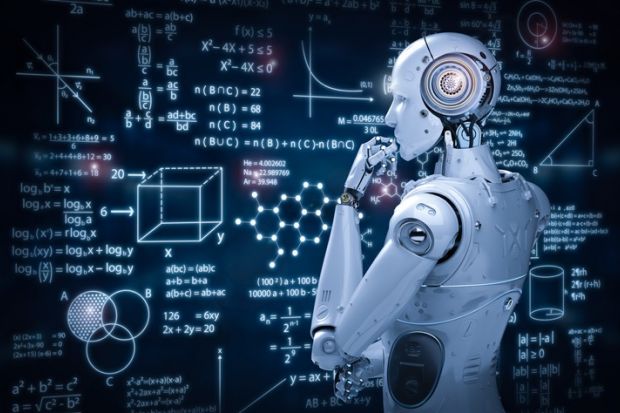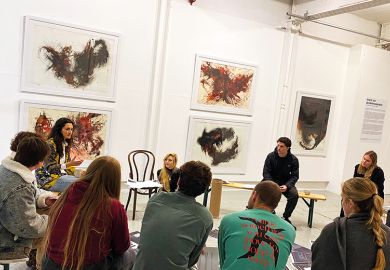As a researcher in machine learning, I am frequently asked about the effects of artificial intelligence and automation on the future of education and work. Prospective students and their families want to know which courses and jobs are the most “AI-proof”. Recent graduates wonder how quickly they will need to retrain. And corporate partners want to know how their employees can be upskilled, reskilled and retrained, so that we can all work synergistically with automation, rather than be intimidated by it.
The advent of machine learning and AI is not a futuristic concept. It is already here, in all aspects of our lives. Jobs once considered immune to automation are being impacted, such as diagnostic testing in healthcare. Many predictive models are trying to assess just how many jobs will be subject to change or elimination. The World Economic Forum estimates that automation will create 133 million new roles, but cause 75 million jobs to be displaced by 2022.
But while the pace of change may be particularly fast today, the fact is that the way we live, learn and work has always been evolving. Yet one thing remains constant: the ability of human beings to learn, grow and prosper as their environment mandates.
Still, when change is rapid, preparation is key. Educational institutions’ responsibilities are not limited to equipping our students with the skills and knowledge they will need immediately to be competitive and successful in the automated workplace. They also need to enable them to adapt continually throughout the course of their professional lives as some occupations are replaced by automation and others are augmented or created by it. Flexibility, adaptability, innovation and interdisciplinarity need to become second nature to students, just as they are to inventors.
This can be achieved by immersing them in a setting where an entrepreneurial and innovative spirit are prevalent across all departments. For example, at Arizona State University, we recently introduced “Practice Labs”, an experiential learning paradigm in which interdisciplinary teams of students work with corporate partners to identify and solve complex problems. They may create a new prototype or develop an app in a collaborative manner with industry professionals in a real-world environment.
But while thought leaders worldwide continue to analyse and debate what the future of work will look like, how can we reasonably expect students and new graduates to monitor market trends and make informed, thoughtful decisions about their academic and career paths?
One important step is for universities to hire faculty who are not only experts in their fields, but connected and actively involved with industry. Furthermore, students who have the opportunity to gain experiential knowledge in addition to their academic work are well positioned to recognise the shifting dynamics at play and, therefore, are better prepared to adapt as necessary to ensure that they not only remain relevant, but thrive. For example, a student working in a Practice Lab or similar setting is more likely to recognise the actual degree of automation used in a workplace – and its impact on employees – than a student only exposed to the classroom.
Indeed, experiential learning is becoming more of a necessity than an option. Students who have the opportunity to immerse themselves in real-world environments as part of their academic pursuits learn how to collaborate, compromise and strategise. They will also learn creativity, analytical thinking and empathy. These are all skills that remain unique to humans.
But even if and when that starts to change, a student provided by their education with not just a career roadmap but a whole atlas should always be able to navigate their way towards the next niche in the employment market.
Sethuraman Panchanathan is executive vice president of the Knowledge Enterprise and chief research and innovation officer at Arizona State University.




